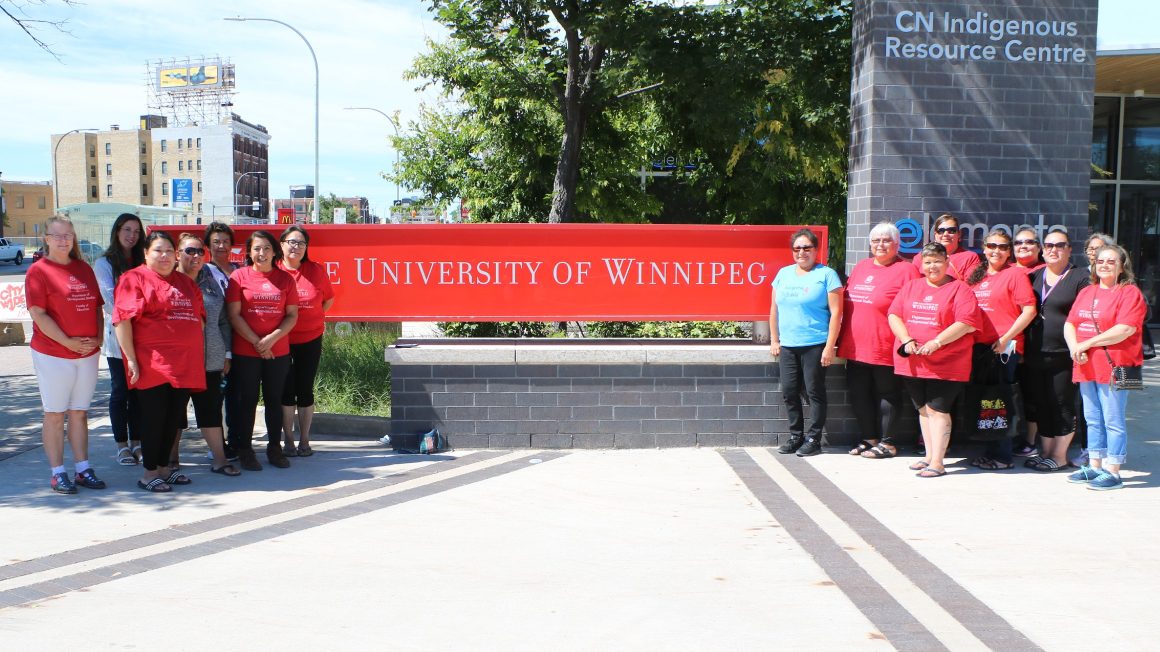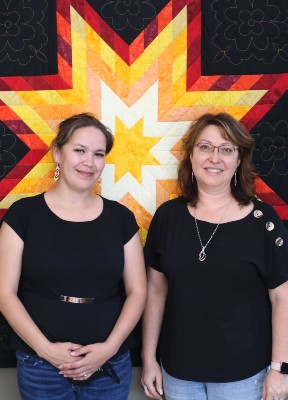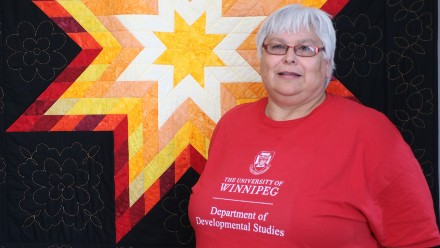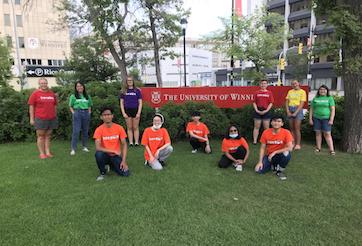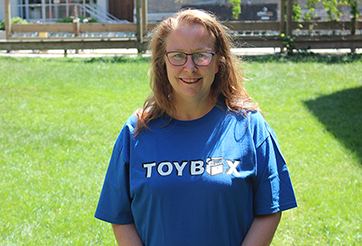The University of Winnipeg’s Developmental Studies Program welcomed the first Indigenous cohort to campus since the start of the pandemic.
In total, 18 students from as far north as Tataskweyak Cree Nation (Split Lake) and Northlands Denesuline First Nation (Lac Brochet) met with staff at the UWinnipeg Students’ Association (UWSA) Daycare to share their knowledge and experiences.
“I have humbly learned so much from this group of Indigenous students living in rural and remote areas of our province about cultural teachings, systemic differences, the loss of their ancestral languages, and the need for the development of curriculum that meets the needs of all students,” said Sheri-Lynn Skwarchuk, Director of Developmental Studies.
“Having UWSA childcare staff together with the directors of childcare centres and head start programs from Indigenous communities was an important, meaningful step in addressing Truth and Reconciliation and University Indigenization goals.”
Sharing Indigenous Knowledge
As Director of the UWSA Daycare, Ioulia Berdnikova says staff have been looking at ways to bring Indigenous knowledge to the daycare for years.
“The idea is that we’re going to be talking and discussing ideas about bringing Indigenous education to the children and how to properly do it,” she said. “We want to know why we wear the orange shirt and how to present these topics to the children.”
Tara Myran of Long Plain First Nation has been working with the UWSA Daycare and is a mother of five children. She’s also an alumnus of UWinnipeg, graduating with a Bachelor of Arts in both Psychology and Rhetoric, Writing, and Communications, as well as a Master’s in Development Practice: Indigenous Development.
Myran, who attended residential school, says it’s important daycares are able to provide children with the opportunities of Indigenous teachings. Her father, who has passed away, was also a residential school Survivor.
After Berdnikova approached her last year about including Indigenous teachings at the daycare, she was happy to help.
“I do the Seven Sacred Teachings throughout the year and to different age groups,” she explained. “The diversity of the students is phenomenal, because when they come up to me after and share the teachings that they have for like Maskwa, which is the bear and courage, that’s something that they’re going to carry with them for the rest of their lives.”
Myran hopes the Seven Sacred Teachings can be shared with other daycares in Manitoba.
Vivian Scott is the Director of the Early Childhood Education Centre in Cross Lake and has been part of the Indigenous cohort since 2020.
However, Scott has been involved with Skwarchuk long before the cohort started, as she has been lobbying and advocating on behalf of children, parents, and staff about the need for more programs and more training.
“I – we – wanted something from an Indigenous perspective,” Scott explained. “We wanted to take courses that were going to be relevant to our First Nations and that we would be able, after we finished, to go on and teach my staff, teach the parents, and teach the children.”
Originally, Scott and the entire cohort were supposed to come to campus one week of every month, but due to the pandemic, they had to adjust their planning.
They spent the entire week of August 8-12 in Winnipeg after learning UWSA Daycare staff wanted to learn more about Indigenous perspectives.
“There is a lot of collaboration and a lot of teamwork,” Scott noted. “We’re bringing our perspectives together to make a better future for the next generations.”
Combining Resources
Despite the challenges posed by the pandemic, the cohort is now halfway through their coursework.
Skwarchuk hopes UWinnipeg can continue to be a meeting place where people from all walks of life can connect to share knowledge around early childhood education.
“By connecting this cohort with UWSA Daycare staff, there is a vision to pursue future work on cultural teachings and share resources and ideas to support the development of all young Manitoban children.”

